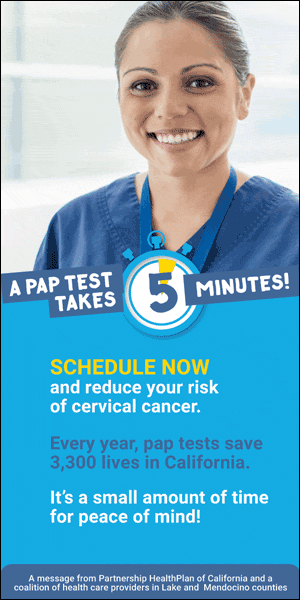

The arrival of the first doses of Pfizer's COVID-19 vaccine was met with cheers round the Ohio Valley because the first doses were administered to front-line health workers. The Pfizer – and, soon, Moderna – vaccines bring the promise of relief after months of pandemic-driven closures along with a deadly surge in cases.
But the vaccines' arrival also brings a lot of questions. The Ohio Valley ReSource asked you, our listeners and readers, what you need to know concerning the vaccine, and you responded with dozens of questions. People want to know about how exactly safe and effective the vaccines are, how they work, and who will get vaccinated when.
We took some of the inquiries to Dr. Vince Venditto, an assistant professor in the University of Kentucky's College of Pharmacy. Venditto did his postdoctoral learning vaccine design, which he said makes this moment one which “overlaps nicely with my training, so it’s a thrilling duration of history.”
Our partners in the public media collaboration America Amplified are also answering questions with the help of medical professionals in their parts of the country.
Here are answers to a number of your questions about the vaccines.
Still Infectious?
One concern we heard from a lot of listeners was if the vaccine will block transmission in addition to prevent illness:
Will the vaccine provide immunity from being a carrier from the virus (i.e., will you be immune from transmitting the virus once vaccinated)?
Once you will find the vaccine, are you able to still transmit the virus to others even when it doesn't affect you?
The U.S. Food & Drug Administration has found the vaccines produced by pharmaceutical companies Pfizer and Moderna effective in preventing COVID-19 disease in a vaccinated individual. But Dr. Venditto said we don't yet determine if the vaccines will even reduce infectious transmission.
“They did not test whether or not you can transmit,” he said. “But what it’s going to do, it’s going to keep them out of a healthcare facility. That’s what we should know right now. It’s likely to prevent them from progressing to finding yourself in the ICU and on a ventilator. The information we've right now is that the vaccine prevents disease progression. It doesn’t necessarily prevent you from getting infected, it doesn’t necessarily prevent you from transmitting.”
Venditto said further research will inform us much more about whether the vaccines will limit infectiousness, but masks and social distancing will still be with us for some time.
Officials in the Centers for Disease Control and Prevention say “it will become important for everyone to continue using all of the tools available to us to help stop this pandemic, like covering the mouth area and nose with a mask, washing hands often, and staying in least 6 feet away from others.”
Safety
Several people had questions regarding the vaccine's safety, specifically for individuals with other medical conditions.
Is it okay for people who take immunosuppressive drugs?
How do we expect the vaccines to affect those who have had COVID-19?
Both the Moderna and Pfizer trial data look good, Venditto said, and the reported side-effects appear mild.
“You know, you’re immunizing 40,000 people. So what we are able to tell from 40,000 people is that in general, you see some soreness, some fatigue, the thing is, perhaps a fever, chills, those types of things,” he said.
As with any vaccine, the FDA and pharmaceutical companies continuously monitor every negative effect that may occur.
Venditto said we don't yet have sufficient data to answer the questions about effects on someone taking immunosuppressant drugs.
“We possess some evidence, but we don’t have sufficient evidence, I would say, at this point, to have a definitive answer,” he said.
Dr. William Moss, executive director from the International Vaccine Access Center, echoed that.
“We’re going to need to look cautiously at data on the security and efficacy because that too could be impaired in immunocompromised individuals,” Moss said. But, he added, the technique of production for these vaccines might make it less likely the vaccine would cause problems with compromised immune systems.
“The vaccines that are typically not advised routinely for severely immunocompromised folks are what we should call attenuated viral vaccines, where we take the natural virus and make it weaker. And this is a really old method of making vaccines,” he said.
The Moderna and Pfizer vaccines work in a different way. Both use genetic material in the virus, called messenger RNA, to stimulate protein growth in the body, triggering an immune response.
“So I don’t anticipate problems with safety,” Moss said, “but that will need to be studied going forward.”
Availability
Several in our listener questions had to do with who'll get the vaccine, and when.
I am 75 and in a healthy body. At what phase am i going to be able to receive the vaccine?
My husband is within his mid 70s with underlying health conditions that I believe will make him eligible for the early vaccine inoculation. As a healthy 70 year old married and living with him, where would I stand in the inoculation distribution?
Answers to a lot of of these questions hinge on decisions which are still being made about scheduling early use of the vaccines.
The CDC caused state and tribal governments to build up a “playbook” for local vaccination plans. The priorities for vaccination are largely as much as state officials. Within the Ohio Valley, the very first recipients happen to be front-line health workers and long-term health care providers. Soon, people in medically vulnerable populations will receive vaccinations.
Dr. William Schaffner, medical director from the National Foundation for Infectious Diseases, said age will be a major determining factor. For individuals over 65, he said, “you'll maintain the 2nd or third group to get a vaccine, likely by sometime this spring.”
Residents of long-term care facilities will be high-priority, he said, but beyond that, “We are waiting on advice in the CDC Advisory committee on who is going next – essential workers, or people who are 65 or older.”
Venditto said this is exactly why it will be important to continue growth and development of more vaccines by other drug makers still within the research and approval pipeline.
“Because of these supply chain problems and also the need for all the reagents to create these vaccines,” he explained. “When you consider vaccinating the entire world, we must have all these things in position.”
Cost and Access
Other listeners had questions about the price of receiving the vaccine, or whether immigration status would affect access.
“My mom, 73, is really a green card holder residing in Louisville with me. She doesn't have Medicare or Medicaid or other medical health insurance. Is there a way or place to get her the COVID-19 vaccine?”
Visa status shouldn't affect access to the vaccine.
“There are no restrictions on vaccine provisions to anyone on a visa,” said Dr. Mary Anne Jackson, Dean of University of Missouri-Kansas City Medical School along with a member of the National Vaccine Advisory Committee.
As for cost, based on the CDC, the vaccine doses “will be given towards the American people free of charge.”
However, vaccination providers will be able to charge an “administration fee” for delivering the shots and get reimbursement from the authorities.
The day the vaccines found its way to Kentucky, Gov. Andy Beshear dedicated to making the vaccines free for those in need.
“We're will make sure that here in Kentucky we do whatever it takes to make certain that those that are uninsured or underinsured and when there is any charge, can not afford the vaccine, can still get it.”
Officials in West Virginia and Ohio made similar commitments.
The Shot
Some listeners had questions regarding the vaccination experience.
I wonder what it really feels like to obtain a vaccine that comes from a -81° freezer?
I wonder if individuals will have a chance to choose a particular vaccine? Basically prefer to get Moderna’s vaccine, is the fact that an option I can make?
The Pfizer vaccine is shipped at -94 degrees Fahrenheit, and when it reaches a hospital, it may be stored between 17.6 and 28 degrees. Venditto said the vaccine isn't injected at those temperatures.
“Somebody would take it out of the fridge or even the freezer, let it warm up to 70 degrees after which and then inject it,” he said. “So you shouldn’t have cold feelings or anything.”
Venditto said a minimum of initially, nobody reaches determine which vaccine they'll get.
“The short answer for the short term isn't any, because of how the vaccine is going to be distributed around the country and round the world.”
The Ohio Valley ReSource gets support in the Corporation for Public Broadcasting and our partner stations.

This story was produced as part of America Amplified, a public media initiative funded by the Corporation for Public Broadcasting.













